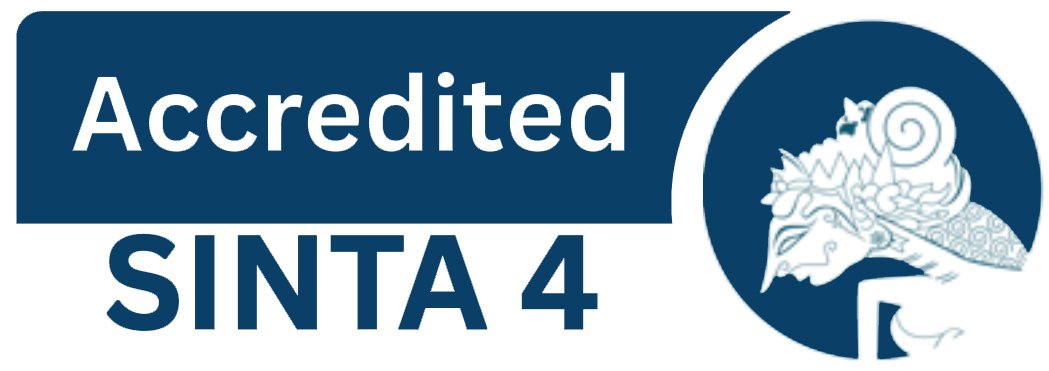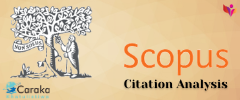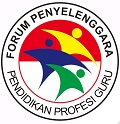Application of ICT-Based Problem Based Learning Method as a Learning Innovation for Pancasila Education to Improve Learning Outcomes of Class VII D Students of SMPN 51 Palembang
DOI:
https://doi.org/10.22460/jpp.v4i1.27622Keywords:
Problem Based Learning, ICT, Learning Outcomes, Pancasila EducationAbstract
This study aims to improve the effectiveness of learning outcomes of students in class VII D SMPN 51 Palembang in the subject of Pancasila Education, especially the material of Unity in Diversity, through the application of the Problem Based Learning (PBL) learning model by utilizing ICT media. The research method used is Classroom Action Research (PTK) which is carried out in two cycles, each consisting of the stages of planning, implementation, observation, and reflection. Data were obtained through observation, interviews, and evaluation of learning outcomes using Google Form. The results showed that the application of ICT-based PBL was able to increase the active participation of students, improve the learning process, and improve learning outcomes significantly. Learning media such as interactive presentations through Canva and online evaluation based on Google Form make learning more interesting and accessible to students. Based on the evaluation results in cycle II, there was an increase in the class average score which showed the achievement of the success indicator. Thus, the ICT-based PBL model is effectively applied in learning Pancasila Education to encourage active learning, critical thinking, and deeper understanding.
References
Agusti, N. M., & Aslam, A. (2022). Efektivitas media pembelajaran aplikasi wordwall terhadap hasil belajar ipa siswa sekolah dasar. Jurnal Basicedu, 6(4), 5794-5800. https://www.neliti.com/publications/451364/efektivitas-media-pembelajaran-aplikasi-wordwall-terhadap-hasil-belajar-ipa-siswa
Amini, F., Kelana, J. B., & Mugara, R. (2024). Pengembangan bahan ajar materi interaksi sosial berbasis model pembelajaran kooperatif tipe stad. Jurnal Profesi Pendidikan, 3(1), 38-52.
Darmawan Harefa. (2023). Efektivitas Model Pembelajaran Talking Chips untuk meningkatkan hasil belajar siswa. TUNAS : Jurnal Pendidikan Biologi, 4(1), 83 - 99. https://doi.org/10.57094/tunas.v4i1.1011
Diah Lestari, Masduki Asbari, & Eka Erma Yani. (2023). Kurikulum Merdeka : Hakikat Kurikulum dalam Pendidikan. Joernal of Information Systems And Management, Vol 2 No 5, Oktober 2023, 1-4. https://jisma.org/index.php/jisma/article/view/840
Martin, N. ., Muntari, & Nurhayati, E. . (2024). Efektivitas Model Problem Based Learning (PBL) dalam Meningkatkan Hasil Belajar Siswa . Journal of Classroom Action Research, 6(2), 442–229. https://doi.org/10.29303/jcar.v6i2.7170
Mayasari, A. ., Arifudin, O., & Juliawati, E. . (2022). Implementasi Model Problem Based Learning (PBL) dalam Meningkatkan Keaktifan Pembelajaran. Jurnal Tahsinia, 3(2), 167–175. https://doi.org/10.57171/jt.v3i2.335
Meryansumayeka, M., Aisyah, N., Pratiwi, W. D., Kurniadi, E., Sari, R. P., Azma, T. R., & Khairida, K. (2025). Peningkatan Kemampuan Numerasi Materi Sistem Persamaan Linier dengan Penerapan Problem Based Learning Berbantuan Media ICT . SJME (Supremum Journal of Mathematics Education), 9(1), 117–131. https://doi.org/10.35706/sjme.v9i1.92
Mulyani, S. (2021). Pemanfaatan Media Pembelajaran Ict Dalam Meningkatkan Hasil Belajar Bahasa Inggris Pada Siswa Kelas Viii-3 Smp Negeri 9 Tebing Tinggi. School Education Journal Pgsd Fip Unimed, 11(1), 42-50. https://eviantis.academia.edu/SchoolEducationJournalPGSDFIPUNIMED
Rahmat, E. (2018). Penerapan model pembelajaran problem based learning (PBL) untuk meningkatkan prestasi belajar siswa. Jurnal Penelitian Pendidikan, 18(2), 144-159. https://ejournal.upi.edu/index.php/JER/article/view/12955
Saadah, M., Prasetiyo, Y. C., & Rahmayati, G. T. (2022). STRATEGI DALAM MENJAGA KEABSAHAN DATA PADA PENELITIAN KUALITATIF. Al-’Adad: Jurnal Tadris Matematika, 1(2), 54–64. https://doi.org/10.24260/add.v1i2.1113
Subhaktiyasa, P. G. (2024). Evaluasi Validitas dan Reliabilitas Instrumen Penelitian Kuantitatif: Sebuah Studi Pustaka. Journal of Education Research, 5(4), 5599–5609. https://doi.org/10.37985/jer.v5i4.1747
Sukestini, E., Fatirul, A. N., & Hartono, H. (2020). Problem Based Learning with ICT Based with Learning Creativity to Improve History Learning Achievement. Jurnal Pendidikan Dan Pengajaran, 53(3), 227–235. https://doi.org/10.23887/jpp.v53i1.24127
Tri Linda Antika, (2023) “Upaya Meningkatkan Hasil Pembelajaran Siswa dalam Pembelajaran Bahasa Indonesia Menggunakan Model Pembelajaran Konstruktivisme”, Era Lingua, vol. 1, no. 1, pp. 17–35, Mar. 2023. https://jurnal.eraliterasi.com/index.php/eralingua/article/view/38
Downloads
Published
How to Cite
Issue
Section
License
Copyright (c) 2025 Yanuar Rafindo, Puspa Dianti, Laili Linda Hartati

This work is licensed under a Creative Commons Attribution-ShareAlike 4.0 International License.
Authors who publish with the Journal Pendidikan Profesi (JPP) agree to the following terms:
- Authors retain copyright and grant the journal the right of first publication with the work simultaneously licensed under a Creative Commons Attribution License (CC BY-SA 4.0) that allows others to share the work with an acknowledgment of the work's authorship and initial publication in this journal.
- Authors are able to enter into separate, additional contractual arrangements for the non-exclusive distribution of the journal's published version of the work (e.g., post it to an institutional repository or publish it in a book), with an acknowledgment of its initial publication in this journal.
- Authors are permitted and encouraged to post their work online (e.g., in institutional repositories or on their website) prior to and during the submission process, as it can lead to productive exchanges, as well as earlier and greater citation of published work. (See The Effect of Open Access)
Similar Articles
- Izzah Millati, Agustina Tyas Asri Hardini, Improving the Cooperation Attitude of Grade V Students Through the Application of Problem-Based Learning Model in Pancasila Education Subjects , Jurnal Profesi Pendidikan: Vol. 4 No. 1 (2025): June
- Oky Prayogi, Ryan Dwi Puspita, Implementation of Constructivism-Based Game-Based Learning Model in Science Learning for Grade IV , Jurnal Profesi Pendidikan: Vol. 4 No. 1 (2025): June
- Enur Nurmawati, Meningkatkan Motivasi dan Hasil Belajar Matematika Peserta Didik Kelas VII Melalui Penerapan Model Pembelajaran Problem Based Learning , Jurnal Profesi Pendidikan: Vol. 3 No. 1 (2024): June
- Paulina Sri Fajar Br. Aritonang, Rika Amelia, Rizky Afianto, Salsabila Amalia, Aflich Yusnita Fitrianna, Penerapan Problem Based Learning (PBL) dalam Meningkatkan Kemampuan Berpikir Kritis Siswa di Sekolah , Jurnal Profesi Pendidikan: Vol. 3 No. 2 (2024): December
- Kurnia Akbar, Citadewi Aditya, Lathifah Rizki, Nelly Ade Karisma, Selvi Novitasari, Widya Sulistia, Yulianti Yulianti, Penerapan Model Problem Based Learning Berbantuan Komik Digital untuk Meningkatkan Pemahaman Konsep Matematis Siswa pada Materi Perkalian Pecahan di Kelas V Sekolah Dasar , Jurnal Profesi Pendidikan: Vol. 3 No. 2 (2024): December
- Julia Julia, Umi Chotimah, Tyas Masito Mutiara, Enhancing Learning Motivation of Grade XI.9 Students Through Zep Quiz Media in Civics Education at SMA Negeri 3 Palembang , Jurnal Profesi Pendidikan: Vol. 4 No. 1 (2025): June
- Nuraini Nuraini, Camellia Camellia, Maimun Maimun, The Implementation of Culturally Responsive Teaching (CRT) Approach to Improve Learning Outcomes and Learning Motivation of Grade XI.3 Students at SMA Negeri 1 Palembang , Jurnal Profesi Pendidikan: Vol. 4 No. 1 (2025): June
- Mira Astria, Ryan Dwi Puspita, Application of Humanistic Theory Assisted by Deep Learning in Science Learning Grade 4 SDN 108/1 Sungai Rumbai , Jurnal Profesi Pendidikan: Vol. 4 No. 1 (2025): June
- Luviani Sri Rezeki, Trisna Nugraha, Penggunaan Model Project Based Learning Berbasis Socio Scientific Issues untuk Meningkatkan Kemampuan Berpikir Kreatif Siswa Kelas IV Sekolah Dasar , Jurnal Profesi Pendidikan: Vol. 3 No. 2 (2024): December
- Nona Sundari, Camellia Camellia, Maimun Maimun, Improving Student Learning Outcomes Through the Teaching at the Right Level (TaRL) Approach in the Pancasila Education Subject at SMA Negeri 1 Palembang , Jurnal Profesi Pendidikan: Vol. 4 No. 1 (2025): June
You may also start an advanced similarity search for this article.
















